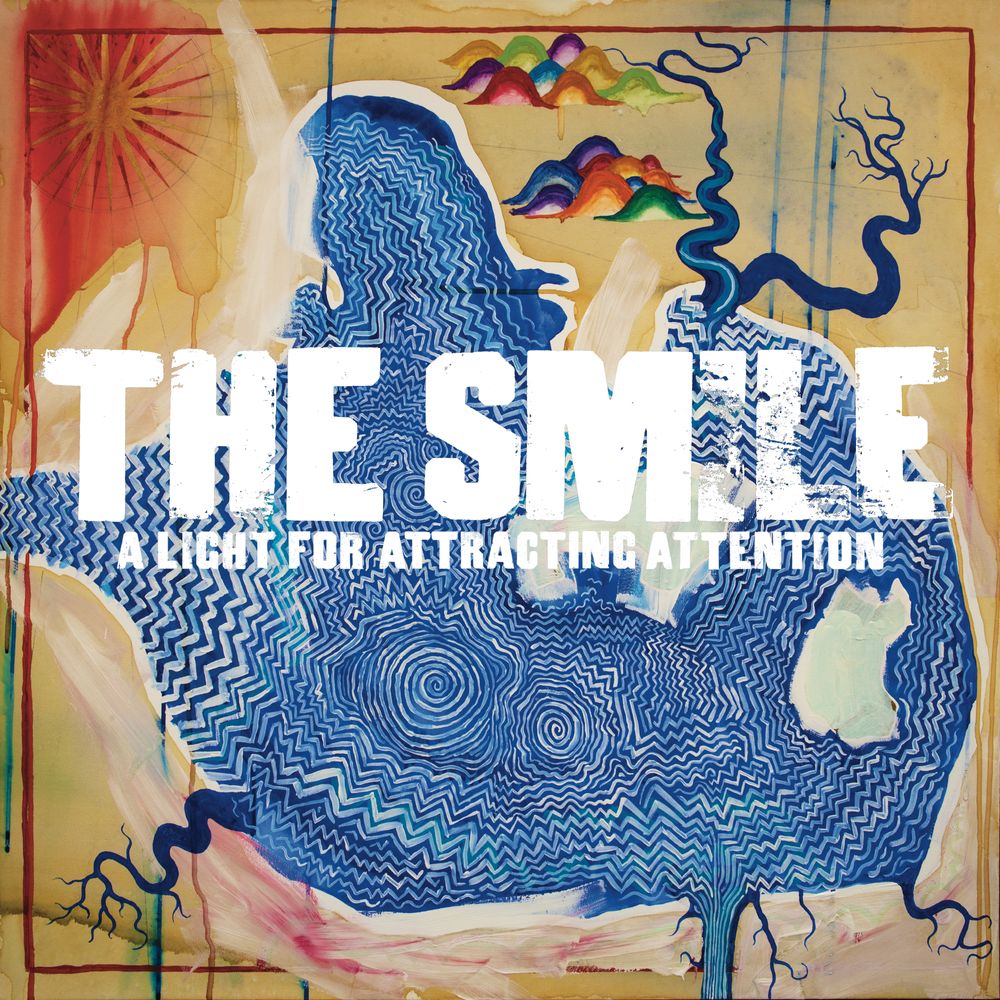The more I heard from A Light For Attracting Attentionthe more the question gnawed at me: Why isn’t this a Radiohead album?
Thom Yorke and Jonny Greenwood are under no obligation to make music with Colin Greenwood, Phil Selway, and Ed O’Brien. But historically Thom and Jonny have been the two most important creative forces in Radiohead, and the Smile — their new band with drummer Tom Skinner — more often than not sounds like Radiohead, as any song-based partnership between these people is bound to sound at this late date. Production by Nigel Godrich, a key architect of the Radiohead aesthetic in his own right, obviously further underlines that similarity, but Godrich worked on all of Yorke’s solo albums and the Atoms For Peace record too. Bringing Jonny Greenwood into the side-project fold feels different — like the Mad Men season 3 finale when Don Draper and the gang sneakily launch a new agency and leave the old one to die. That might be an entirely incorrect read on the situation, but without knowing how the Smile came together and how the other Radiohead guys feel about it, a little part of me is uneasy about this project and what it says about the state of my favorite band .
That said, unease has always been a crucial component of the Radiohead experience — literally since “Creep” — and setting sentimentality aside, it’s hard to argue with results. A Light For Attracting Attention, out this Friday, is a fantastic addition to the Radiohead extended universe and the best non-Radiohead album Yorke has ever released. I’ll spare you my granular fanboy discography rankings (the true sickos can hash it out with me on Twitter) but in short, this one falls short of masterpiece status while delivering enough thrills to hang with the bottom half of the Radiohead catalogue. In spirit and practice it most resembles Hail To The Thief, less a coherent statement than a rummage bin of styles and ideas. The last couple songs even feel like direct callbacks to that album: The bass-powered synth-rocker “We Don’t Know What Tomorrow Brings” is like “Where I End And You Begin” blaring from a runaway train, while closer “Skrting On The Surface” evokes “Scatterbrain” with an elegant brass section. And at least as often as on Hail To The Thiefthe results of that mishmash are inspired.
My fellow percussion novices might not hear significant differences between the impeccable drumming of Tom Skinner — best known as a member of Shabaka Hutchings’ soca- and Afrobeat-infused experimental jazz group Sons Of Kemet — and his Radiohead counterpart Phil Selway. Selway is a brilliant musician who has always been game to do whatever the song demands; his beats from him have defied gravity more than eleven. But working with a new creative foil seems to have unlocked a scrappy energy in Yorke and Greenwood. The more rock-oriented tracks boast a visceral rawness rarely heard from these guys, and maybe not at all since In Rainbows tracks like “Bodysnatchers” and “Jigsaw Falling Into Place.” On songs like the magnificently funky “The Opposite” and the hyperactive “Thin Thing,” spiky guitar riffs that remind me of Mdou Moctar bend and tangle into knotty choreography. Debut single “You Will Never Work In Television Again” is the kind of bashed-out hell I didn’t know Yorke had in him. When the Smile let it rip like that, they almost could pass for a garage band; when they lock into an easygoing groove on “The Smoke,” I’m reminded of The Private Press by Yorke’s old influence and collaborator DJ Shadow.
But far be it from Yorke and Greenwood to make it a power-trio record, as appealing as that prospect may be. Skinner brings with him a slew of heavyweights from London’s experimental jazz scene, including Sons Of Kemet bandmate Theon Cross (tuba) and his brother Nathaniel (trombone) plus big-deal saxophonists Jason Yarde, Robert Stillman (sometimes on clarinet), and Chelsea Carmichael (on flute here) among others. That crew plus Greenwood’s pals from the London Contemporary Orchestra ensure the Smile can flesh out their core sound into ornate splendor when they so choose. Sometimes that means a return to the orchestral swirl of Radiohead’s most recent album, 2016’s A Moon Shaped Pool, as on the loping, piano-led “Pana-vision” (a cousin to rhythmically complex yet melancholy tracks like “Decks Dark” and “The Numbers”), the gorgeous “Open The Floodgates” (a sonic sequel to the spectral “ Daydreaming”), and the breathtaking “Speech Bubbles” (a more desolate “Present Tense”). The best of these symphonic exercises hearkens back much farther: The acoustic ballad “Free In The Knowledge” is the closest thing to “Fake Plastic Trees” you’re bound to get from Yorke 27 years on from The Bends.
